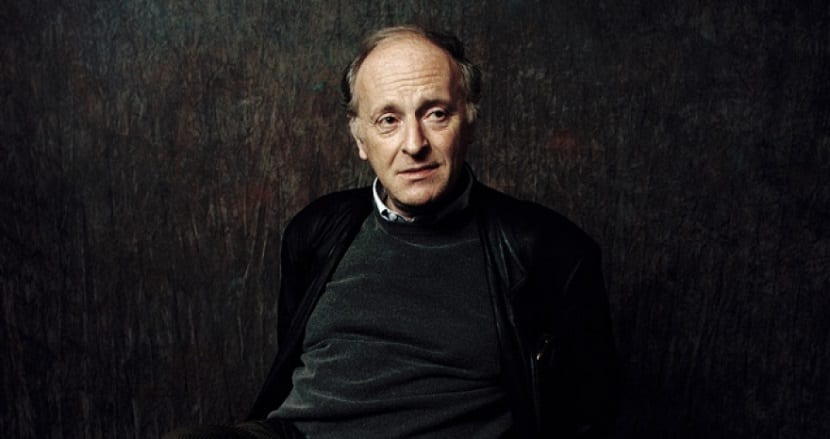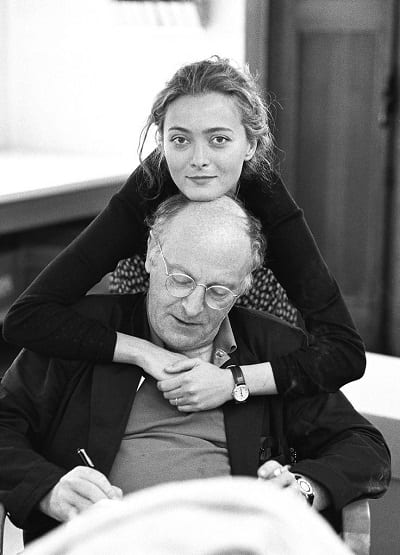Do you know who Joseph Brodsky was? If you know that he was a Russian-American poet, do you know anything else about his peculiar life? Do you know what he studied and how he got to be Nobel Prize in Literature in 1987? In this article we will tell you almost everything about him and we will also discover what was the list of recommended books that he advised his Mount Holyoke students.
Did you know this about Joseph Brodsky?
- He was born and raised in the ancient city of Leningrad, current Saint Petersburg.
- He left school when he was only 15 years old Or rather, he was expelled, and at that time he had up to 7 different and occasional jobs (mechanic, in a morgue, in a factory, in greenhouses, etc.).
- Since he left school he turned autodidact: He read book after book and this led him to have a good future job.
- Was renowned translator, He was good at it and they put him in charge of it.
- He gave literature classes in different American universities.
- He wrote a lot of poetry in Russian but also in English, which would be his new language once he moved to the United States.
- Besides poetry, he would do essays and plays.
- He passed away in 1996 in New York.
Books you recommended
In one of his literature classes, Joseph Brodsky recommended to his students a very comprehensive list of books that according to him were necessary to read to be able to maintain a fluent and extensive conversation with someone. They are as follows:
- Hindu sacred text «Bhagavad Gita »
- Mythological epic text from India: "Mahabharata"
- "The Epic of Gilgamesh"
- The old testament
- Iliad, Odisea from Homer
- Nine history books, Herodotus
- Tragedies by Sophocles
- Tragedies de Aeschylus
- Tragedies by Euripides
- "The Peloponnesian War"by Thucydides
- "Dialogues", from Plato
- Poetics, Physics, Ethics, Of the soul of Aristotle
- Alexandrian poetry
- «Of the nature of things » by Lucrecio
- «Parallel lives", by Plutarco
- "Aeneid", who are "Bucolic », who are "Georgian », by Virgilio
- "Annals", by Tacitus
- "Metamorphosis", who are "Heroidas », who are "Art of loving », by Ovid
- New Testament Book
- "Lives of the twelve Caesars", by Suetonio
- "Meditations", by Marco Aurelio
- «Poems», by Cátulo
- «Poems», by Horacio
- "Speeches", by Epícteto
- «Comedies», by Aristophanes
- "Various History", who are "On the nature of animals ”, by Claudio Eliano
- "Argonáuticas", by Apollonius of Rhodes
- "Lives of the Emperors of Byzantium", by Miguel Psellos
- "History of the decline and fall of the Roman Empire", by Edward Gibbon
- "Enneads", de Plotinus
- "History of the Church", by Eusebio
- "Consolation of philosophy", by Boecio
- "Cards", by Pliny the Younger
- Byzantine poetry
- "Fragments", by Heraclitus
- "Confessions", of San Agustín
- «Summa Theologica», of Saint Thomas Aquinas
- «Little flowers», of Saint Francis of Assisi
- "Prince", by Niccolò Machiavelli
- "Comedy", by Dante Alighieri
- "Three hundred novels"by Franco Sacchetti
- Icelandic Sagas
- William Shakespeare with his plays «Antony and Cleopatra », who are "Hamlet », who are "Macbeth » Y "Henry V »
- François Rabelais books
- Francis Bacon books
- Selected works, Luther
- Calvin: "The institution of the Christian religion"
- Michael de Montaigne: "Essays"
- Miguel de Cervantes: "Don Quixote"
- Rene Descartes: "Speeches"
- Rolando's song
- B
- Benvenuto Cellini
- "The Education of Henry Adams" by Henry Adams
- "Leviathan" by Thomas Hobbes
- "Thoughts" by Blaise Pascal
- "Paradise Lost" by John Milton
- John Donne Books
- Andrew Marvell Books
- George Herbert Books
- Richard Crashaw Books
- "Treaties", by Baruch Spinoza
- "The Charterhouse of Parma", who are "Red and black », who are "Life of Henry Brulard », by Stendhal
- "Gulliver's Travels", by Jonathan Swift
- «Life and opinions of the gentleman Tristram Shandy », by Laurence Sterne
- "Dangerous relationships", by Choderlos de Laclos
- "Persian letters", by Baron de Montesquieu
- "Second treaty about the civil government", by John Locke
- "The Wealth of Nations", by Adam Smith
- "Discourse on metaphysics", by Gottfried Wilhelm Leibniz
- All of David Hume
- 'The Federalist Papers'
- "Critique of Pure Reason", by Immanuel Kant
- "Fear and trembling", who are "Either one or the other », who are "Philosophical crumbs », by Søren Kierkegaard
- "Memories of the subsoil", who are "The demons", by Fyodor Dostoyevsky
- "Democracy in America", by Alexis de Tocqueville
- "Splendor", who are "Travel to Italia", by Johann Wolfgang von Goethe
- "Russia", of Astolphe-Louis-Léonor and Marquis de Custine
- "Mimesis", by Eric Auerbach
- "History of the conquest of Mexico", de William H Prescott
- "The Labyrinth of Solitude, by Octavio Paz
- The logic of scientific research », who are "The open Society and Its Enemies", by Sir Karl Popper
- "Mass and power", by Elias Canetti


Titanic task try to finish them all and understand them. I keep the list. Not only read them but also understand them.